#winston hall
Explore tagged Tumblr posts
Text
221 notes
·
View notes
Text
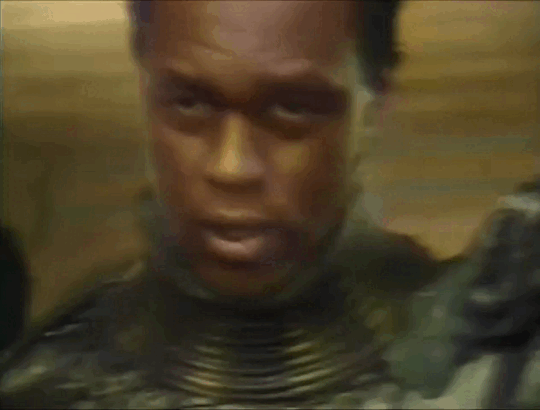

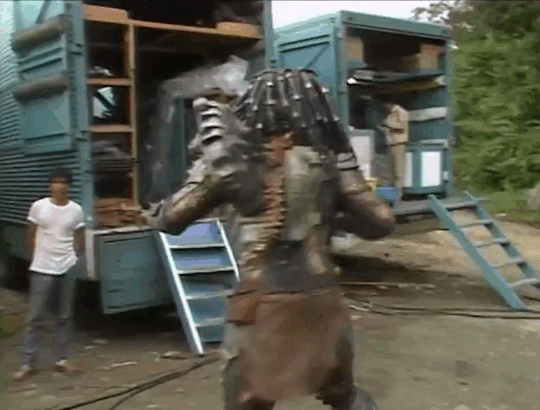
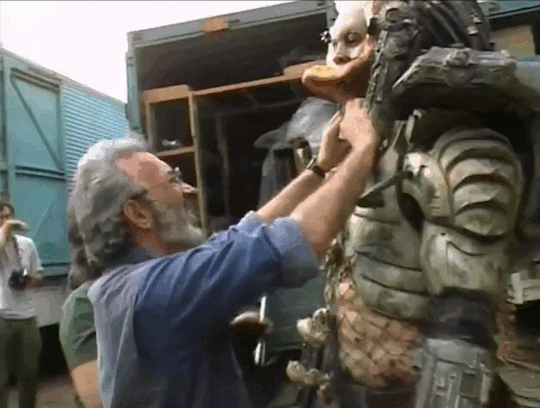
Kevin Peter Hall as The Predator
271 notes
·
View notes
Text
tally core

#the outsiders#dallas winston#tim shepard#Tally Hall reff real not fake#Tallys such a boring ship name tbh💔
31 notes
·
View notes
Note
Winston churchill

Winston Churchill (Real Life/UK Government) is an Anime Girl!
8 notes
·
View notes
Text

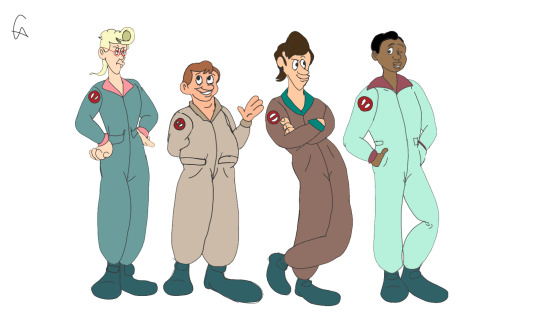
Decided to color in the drawings while making some adjustments and of course did their casuals
#ghostbusters#the real ghostbusters#peter venkman#egon spengler#winston zeddemore#ray stantz#lorenzo music#maurice lamarche#arsenio hall#frank welker
31 notes
·
View notes
Text
I got the First season of Real Ghostbusters on DVD today

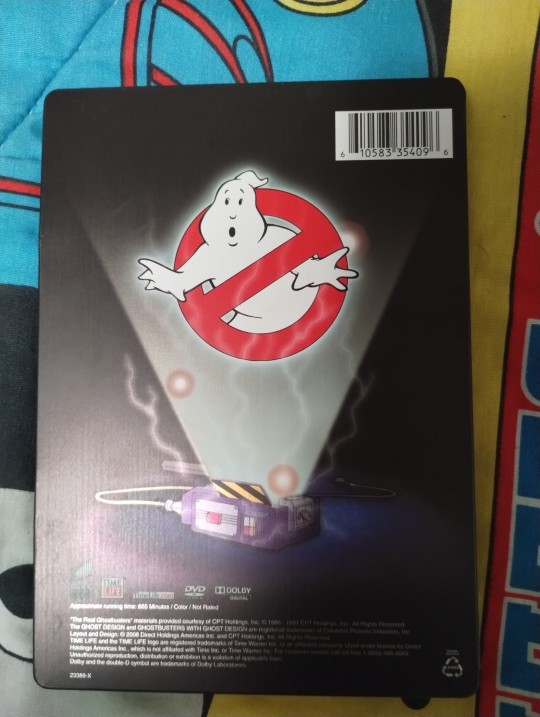
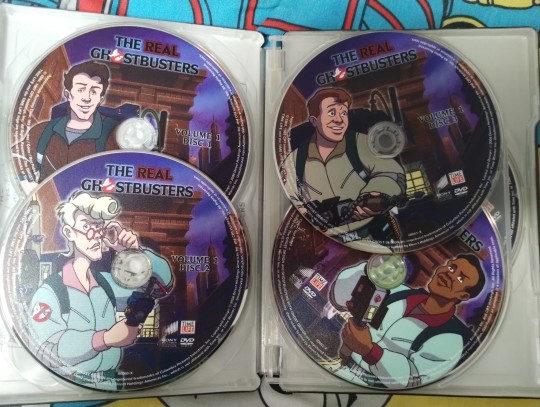
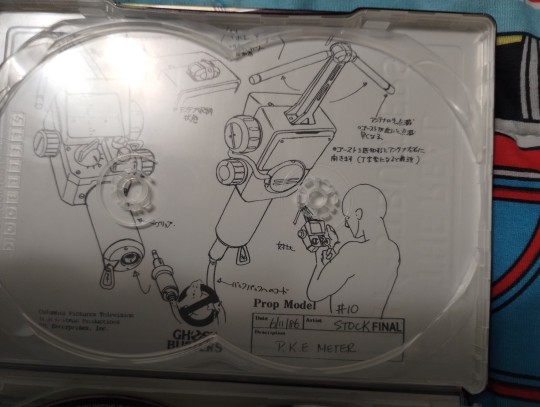
This is honestly quite a nice Steelbook some of the discs have some scratches but they should be able to play also this was meant to be a Christmas present but my dad said fuck it and gave me it early so I can now fully watch the first season of Real Ghostbusters (I've been watching the show on the Ghostbusters YouTube channel but one of the episodes is missing and another episode audio just cuts out)
Oh also another thing this artwork of Ray on the cover

He does not look okay someone please help him
#Ghostbusters#real ghostbusters#the real ghostbusters#ghostbusters fandom#peter venkman#ray stantz#egon spengler#winston zeddemore#Slimer#ghostbusters slimer#lorenzo music#frank welker#maurice lamarche#arsenio hall#dvd#steelbook#physical media#f/o merch#special interest#80s cartoons#80s
37 notes
·
View notes
Text
Christmas Carol-cember, Day 17
Of all the 80s films that have become a franchise, I’m surprised Ghostbusters even had one with such longevity that extended outside the Reagan-era "business ventures that provide a service but is being held back by environmental regulation."

A movie born out of Dan Aykroyd’s personal interest in the supernatural and to co-star with his SNL buddy, Jim Belushi, “Ghostbusters” was truly the film that beat the odds set against it considering the lack of faith from the studio heads as it grossed over $200 million in 1984 and became a pop culture juggernaut with toys, movie sequels, comic books, video games and animated television shows.
Course that’s not much if you consider Robocop, The Toxic Avenger and Rambo got their own animated TV series in the 80s and their franchises haven’t exactly had the same longevity of popularity like Ghostbusters. When the fifth movie came out this year yet the Toxic Avenger remake shows no signs of being released and the other two licenses show no interest in being revisited, clearly Ghostbusters got what the hip kids call “that special sauce.”

So it should come to no surprise that the company responsible for creating these kid-friendly versions of movies that were aimed for older viewers was DIC Entertainment, the same folks behind the 1997 Tim Curry film I covered last week. In the case of today’s outing, “The Real Ghostbusters” (called such over a title dispute with Filmation’s “The Ghost Busters”) was recorded in Los Angeles under joint operation by Columbia Pictures Television with Coca-Cola Telecommunications funding the distribution. But typical of DIC, they shipped the storyboards, scripts, vocal performances and music over to their Japanese HQ and handed over to studios TMS and Toei to put the episodes together before returning them to the Unites States for airing. Though more often than not, DIC would outsource the work to South Koreans studios to do the work for a lower cost, a practice that continues to this day. Which one is hard to pin down as they weren’t credited and all most fans have to go on is speculation.
Regardless of who animated what, ABC aired this episode on December 13, 1986 with the title “Xmas Marks the Spot.” One that also plays on the Dickens tale with their own twist to the narrative.

It’s Christmas Eve in New York City, but for the Ghostbusters, it’s another work day as they return from a countryside haunting during a snow storm. When their car stalls and they walk out to get help, the four are transported to 1840s London where they spot an old man being attacked by ghosts. Stepping in with good intentions, though only assuming the town is just some old fashioned historical commune, the four bust the ghosts, only to be coldly reprimanded by the old man with a “Humbug.” They return home to discover everyone hates Christmas and the best selling book is an anti-Christmas manifesto written by one Ebenezer Scrooge (Peter Renaday). Realizing their mistake too late after the captured ghosts are placed in the Containment Field, the four have to work together to try and save Christmas. Egon Spengler (Maurice LaMarche) dons a special suit and enters the Containment Field to locate the Ghosts of Christmas Past, Present and Future while Winston Zeddemore (Arsenio Hall), Ray Stanz (Frank Welker) and an equally scroogey Peter Venkman (Lorenzo Music) return to the past with technology to try and haunt Scrooge themselves as they take on the roles of the three ghosts until Egon can return. For if they fail, Christmas will forever be a Humbug…
This episode has all the feel of a Saturday Morning Cartoon.

Limited animation, big goofy expressions with a comical sidekick who babbles and characters talking to one another in ways that feel like the writers wanting to impart a “lesson of the day.”
That said, I applaud the writers for getting creative with the premise.
When you establish these guys hunt ghosts, why wouldn’t they immediately bust some ghosts haunting Scrooge without a second thought?
That part is hilarious and still retains the goofiness that defined the Ghostbusters.

I’ll even extend praise to the vocal cast playing the characters. Maurice LaMarche, best known for his stellar Orson Welles impression, does a solid job capturing the flat monotone of Harold Ramis while spewing pseudo-science. Frank Welker’s Ray sounds more like a child-like Fred from Scooby-Doo, but he sells it. Arsenio Hall’s Winston has his moments of wit and he really shines when he pretends to be the Ghost of Christmas Present. Then there’s Lorenzo Music as Peter Venkman, who certainly pairs his lucid tones to match the sarcastic wit of Bill Murray while also showing some depth of feeling when he takes on the role of the Ghost of Christmas Past and his attempts to teach Scrooge how his rough past forms his present causes Venkman to see a parallel between each other.
Also, cause I know it will be brought up if not mentioned, yes, Lorenzo Music was also the voice of Garfield for the cartoon series and then Bill Murray was Garfield for the 2004 movie.
That hot take is as old as as the Numa Numa video.

“The Real Ghostbusters: Xmas Marks The Spot” has a few moments of inspiration, but it’s buried in the same trappings as was present in most 80s cartoons around this time. But that’s not to say the people who worked on it didn’t give their heart into the project, the voice cast clearly commits to the bit, I like that the writers were able to use the one Ghostbuster who doesn’t like Christmas to find the merit in good tidings by finding a parallel with his own past to learn his own lesson and the idea of regular people having to step in to serve as the Ghosts of Christmas Past, Present and Future using modern technology was amusing and original. Its corner-cutting animation is ultimately what keeps it from rising above a passive recommendation, but certainly worth saying that it showcases what made this show popular.

That and toys based on the show. Cause who doesn’t want their own proton pack?
“The Real Ghostbusters: Xmas Marks the Spot” can be purchased on YouTube, Amazon and AppleTV. But you can also watch the full episode for free on YouTube with the link down below.
youtube
Next time, we’re headed to Gotham City as it seems the Batmobile lost it’s wheels and the Joker got away.

#reviews#ebenezer scrooge#a christmas carol#christmas carol#ghostbusters#The real ghostbusters#winston zeddemore#peter venkman#egon spengler#ray stantz#frank welker#maurice lamarche#lorenzo music#arsenio hall#dic entertainment#Youtube
3 notes
·
View notes
Text
made the mistake of browsing #1984 george orwell forgot this is a hell site and very few people have critical thinking skills
#winston is in love with o’brien though hall who said that are right#1984 book#1984 george orwell#mine
71 notes
·
View notes
Text






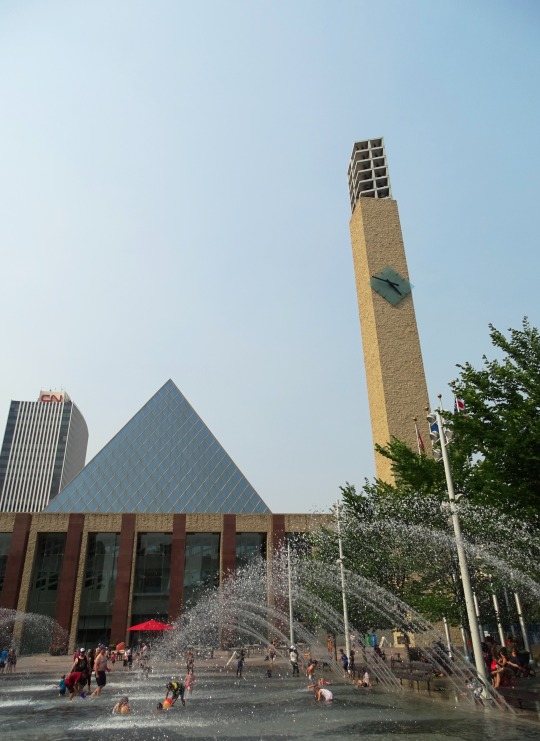



Churchill Square, Edmonton (No. 2)
Churchill Square (officially "Sir Winston Churchill Square") is the main downtown square in Edmonton, Alberta, which plays host to a large number of festivals and events including: the Edmonton International Street Performers Festival, Edmonton Fashion Week, The Works Art & Design Festival, Taste of Edmonton, Cariwest, and Edmonton Pride.
It is bordered on the north by 102A Avenue, on the west by 100 Street, on the south by Harbin Road (102 Avenue) and on the east by Rue Hull (99) Street. In 2009, 102A Avenue was closed to vehicle traffic permanently, providing easier pedestrian access to City Hall.
Surrounding the square are several cultural and governmental buildings, including Edmonton City Hall to the north, the Law Courts and the Art Gallery of Alberta to the north-east, Chancery Hall and the Francis Winspear Centre for Music to the east, the Citadel Theatre to the south-east, the Stanley A. Milner Library (the main branch of Edmonton Public Library) to the south and Edmonton City Centre mall to the west.
The centrepiece of the square builds a life-size bronze statue of Churchill, unveiled by Lady Soames on May 24, 1989. It is a copy of a statue made by Oscar Nemon.
Historically, Edmonton's main square was Market Square, located just to the south of Churchill Square, on the site of the present Milner Library. The City Market was housed in Market Square from its beginning in 1900, originally with the market happening outdoors. Successive plans were considered to develop the square into a civic centre, beginning in 1912. A building was built far away on 107 Avenue for the market to be moved indoors in November 1914, but was never used for this purpose and was boycotted by vendors and customers. The market returned to its original location and the city agreed to help construct a shelter. Beginning in 1915 the market was moved indoors, and by 1920 only overflow stalls were outside. From 1916, when the shelter was built, to 1965, when it moved off the site, the market flourished as the hub of Edmonton life. The City Market was finally shifted east to 97 Street, and the area was redeveloped according to a plan to create a "civic centre" in the area by constructing the new art gallery and library to accompany the new city hall which had been built in 1957.
In 1969, Lillian Shirt drew national media attention for protesting housing discrimination by erecting a tipi on the square. During the protest, which lasted 12 days, was joined by several others who set up tents and an additional tipi.
Churchill Square has undergone several face-lifts, the most recent, expensive, and most controversial, being completed in 2004, in time for Edmonton's Centennial Celebrations. These renovations saw the removal of a large amount of green space, as well as the building of several new structures in the square including an amphitheatre, a waterfall, as well as several structures for retail space (currently occupied by the Three Bananas Cafe and Tix on the Square).
Although Churchill Square is not the name of any street in Edmonton, and all the streets in the area are named, the square is used as the address for buildings facing it, they are numbered clockwise starting in the north.
Source: Wikipedia
#Churchill Wire Centre by Max Dewar#Sir Winston Churchill Square#City Hall Plaza#Churchill Square#Edmonton City Hall#Dub Architects#Edmonton City Hall Water Fountain#Art Gallery of Alberta by Randall Stout#Light Venturi by Terri Frost#fountain#public art#Alberta#Canada#summer 2024#travel#original photography#vacation#tourist attraction#landmark#cityscape#architecture#Edmonton#downtown#Friendship Tower
4 notes
·
View notes
Text
@moonbeamelf
@bixiebeet
Winston Zeddemore in the uniform of his baseball team, the Jaguars, in the The Real Ghostbusters episode Night Game.



9 notes
·
View notes
Text
Sometime i forget ppl have lives and aren’t robots i just talk to online and dont just live in the school and shit ��😭😭😭🙏🙏
do you ever start talking to someone or make a friend online who’s just SO FUCKING COOL you can’t believe they actually talk to YOU of all people ???? amazing.
#people talking to me and seemingly liking me#what a concept#my stuff#online friends#tumblr friends#mutuals#internet friends#personal hall of fame#dally winston#johnny cade
5K notes
·
View notes
Text
youtube
O primeiro filme de um mago dos efeitos especiais: "O Demônio dos Seis Séculos" (Gargoyles, 1972)
#Gargoyles#Bill L. Norton#Cornel Wilde#Jennifer Salt#Bernie Casey#Scott Glenn#Grayson Hall#Woodrow Chambliss#John Gruber#William Stevens#Stan Winston#special effects#70's movies#Youtube
1 note
·
View note
Text
can I say something kinda fucked up
this song is insanely Dallas coded
#To the tempo of your uptight/ Is the flicker of a street light/ You know this moment don't ya#and the time is strangely calm now/ cause everybody's gone now/ its just u and ur anger#HELLO????#oh golden boy#dont act like u were kind???#u were mine but u were awful everytime???#dont hold me like u know me/ id rather burn forever#OH MY GOD???#you really left me on the line kid#holding all ur baggage#u know im not ur father#DARRY TO DALLAS???#BUT U SHOULD KNOW I DIED SLOW RUNNING THROUGH THE HALLS OF UR HAUNTED HOME#DOG#AND THE TOUGHEST PART IS WE BOTH KNOW#WHAT HAPPENED TO U#WHY UR OUT ON UR OWN???#guys im not normal about this even a little bit#the outsiders#dallas winston#darry curtis#Spotify
6 notes
·
View notes
Text
Oh my god they’d go all out for homecoming. That week leading up to it??? They both go ALL out for the themes.
“Dress up as your favorite movie/TV show character”? Done.
Two-Bit’s showing up in a full Mickey Mouse costume.
“Dress up as a farmer”? They’re bringing in the farm animals with them.
“Bring anything but your backpack to school”? Two-Bit’s pullin up with a shopping cart he stole from the local Walmart (he prolly works as the cart wrangler so he just “borrowed” one)
Soda would show up with a FUCKING TIRE (that him and Steve swiped from somewhere) with his books in it.
ALSO, Soda and Two-Bit in the ballot for home coming king? I think yes. The real question is, who’d win?
Because it’s modern day anyone has a fucking chance at being on the ballot don’t even @ me by saying they wouldn’t. Soda would be added for his looks alone. Two-Bit is popular as hell cause he talks to everyone.

Soda’s tire he and Steve took from somewhere.

Two and his Walmart shopping cart.
rip two-bit and sodapop you would’ve LOVED modern pep rallies
#modern outsiders AU?#please please please#they’d love the social aspect of school so much#twobit already does but he’d love it even more because it’s so fucking chaotic all the time#soda would get the help he really needed 😭 Darry would make sure of it!#the outsiders#greaser#two bit mathews#sodapop curtis#darry curtis#ponyboy curtis#dallas winston#steve randle#johnny cade#the idea of twobit pushing a shopping cart through the halls of their school is sending me#I love these boys so much#1960s#socs and greasers
37 notes
·
View notes
Text
tracer told me about this band she found called “tally hall”, and i do say, they are quite enjoyable.
1 note
·
View note
Text
youtube
Well thanks to this video I found I can say that I've technically seen rowlf the dog call Winston Zeddemore a son of a bitch lol
#this video is honestly great btw#I died of fucking laughter when rowlf said son of a bitch#the muppets#Muppets#the real ghostbusters#real ghostbusters#Ghostbusters#ghostbusters fandom#jim henson#arsenio hall#the arsenio hall show#rowlf the dog#kermit the frog#Winston Zeddemore#1989#80s#Youtube
17 notes
·
View notes